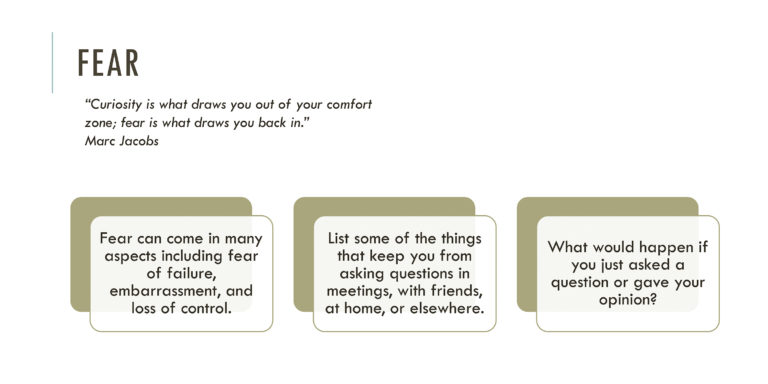What Is Fear and How Does It Affect Curiosity and Innovation?
Fear, the first and most prominent of the four factors of FATE, is fully capable of blocking our curiosity, our pursuit of innovation, and our competitive advantage.

Fear takes many different forms: dislikes, biases, opinions, and even bravado. But don’t be confused; each of these is a variation of fear, and each can bring us to a paralyzing halt. That “deer in the headlights” sensation affects more than just deer.
A part of our brain, the amygdala, signals any signs of threat or danger we may encounter. Such detection triggers the release into our bodies of large doses of chemicals such as adrenaline and cortisol. While this function is essential to our survival, the amygdala has no ability to distinguish a real threat from an imaginary one. It doesn’t know if we’ve confronted a bear or misplaced our iPhone. As Jason Ma [1], founder, CEO, and chief mentor of ThreeEQ, said when he was on my show, “It just knows our thought was negative, which provokes a fight-or-flight reaction within us.”
For example, your amygdala remembers and stores in your brain the reaction you experienced in the third grade when you failed to answer the teacher’s question. It remembers how your colleagues looked at you when you made an off-the-wall suggestion, and it reminds you that the last time you attempted a three-point shot at the buzzer you missed.
Whereas your amygdala may be essential in warning you that spiders and snakes can be a threat, it can also put a damper on your curiosity and desire to explore new things.
The only thing we have to fear is fear itself. Franklin D. Roosevelt [2]
What is fear?
Fear defined
Fear and survival
How many times have we, too, been curious to experience something unknown or to explore a new opportunity yet were too fearful of what might result if we followed through?
Don’t let the noise of others’ opinions drown out your own inner voice.
To determine if fear is holding you back from discovering areas you might otherwise want to explore, ask yourself exactly what you fear. Is it the process or the outcome? Do you not believe you’re capable of doing a particular task or job? Do you need more information to make a decision? What’s at stake if you make a decision?
If you’re considering writing a book, do you fear having it scrutinized or judged? What if you consider doing something but are told it’s risky or scary? Would you accept this input at face value or explore what you want to do anyway?
What if you tried something and failed? Do you think you would look bad from someone else’s viewpoint? Are you worried about being overwhelmed with too much to do? Or worried you’d be putting all your eggs into one basket?
Discussion
Consider how you would deal with your answers to the questions above.Perhaps once you answer them, whatever is holding you back will become clearer, and you can address solving that problem directly.
References
1. Hire Jason Ma | CEO & Chief Mentor of ThreeEQ | Booking Agent [Internet]. Motivationalspeakersagency.co.uk. [cited 9 September 2020]. Available from: https://motivationalspeakersagency.co.uk/business-management-speakers/jason-ma
2. Franklin D. Roosevelt, Inaugural Address, March 4, 1933, as published in Samuel Rosenman, ed., The Public Papers of Franklin D. Roosevelt, Volume Two: The Year of Crisis, 1933 (New York: Random House, 1938), 11–16.
3. Sally Helgesen – Women’s Leadership Coach, Author and Speaker [Internet]. Sally Helgesen. [cited 9 September 2020]. Available from: https://sallyhelgesen.com
4. Samit J. Disrupt You! Master Personal Transformation, Seize Opportunity and Thrive in the Era of Endless Innovation. London: Bluebird; 2015.
Share this
Innovative Leadership: Developing Curiosity

Innovative Leadership: Developing Curiosity


Reach your personal and professional goals
Unlock access to hundreds of expert online courses and degrees from top universities and educators to gain accredited qualifications and professional CV-building certificates.
Join over 18 million learners to launch, switch or build upon your career, all at your own pace, across a wide range of topic areas.
Register to receive updates
-
Create an account to receive our newsletter, course recommendations and promotions.
Register for free








